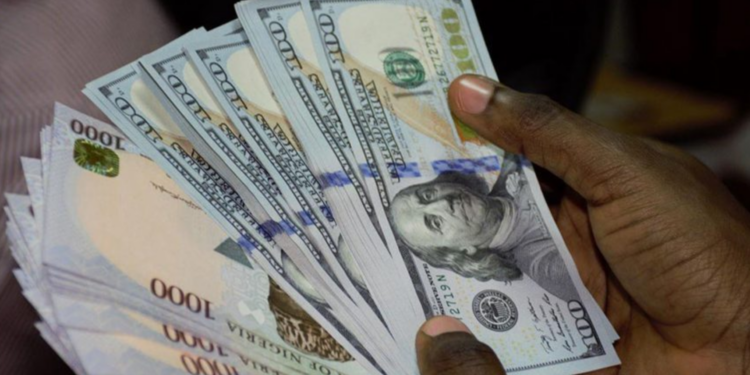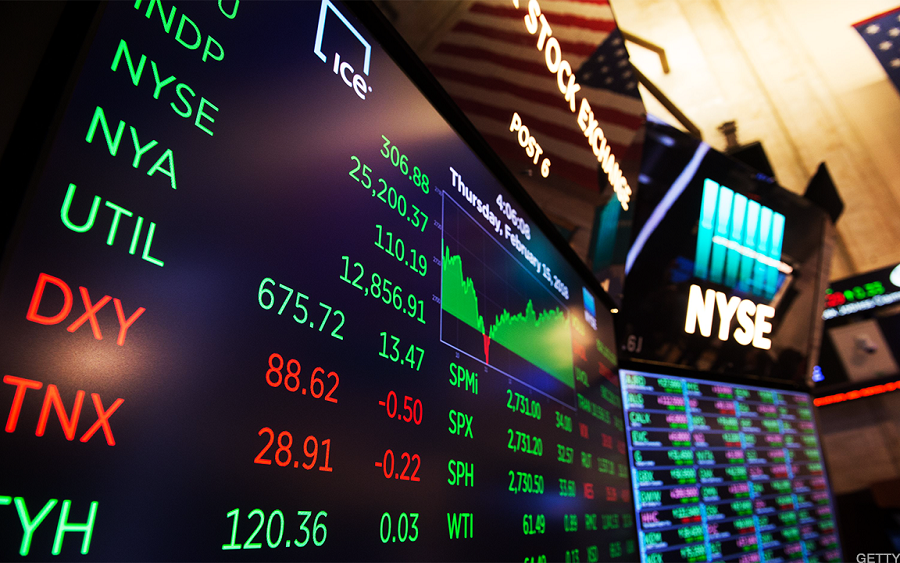Financial experts have said that the elevated exchange rate has led to a lull in trading in foreign stocks because it has become very expensive to buy foreign stocks currently.
Operators interviewed by Nairametrics following the free fall of the naira arising from the harmonization of exchange rates indicated that investors have become more cautious and are now waiting for the exchange rate to stabilize before making any major investment decisions.
The exchange rate between the naira and the dollar ended one of its worst weeks ever on Friday, closing at N808/$1 and N1170/$1 on the official and black markets, respectively.
This represents a significant 5.4% decline on the official NAFEM window, marking the lowest levels recorded at the end of a week in Nigeria’s exchange rate market history.
What financial experts are saying
A senior broker speaking to Nairametrics on condition of anonymity stated that the recent depreciation of the naira has led to an increase in the cost of purchasing foreign stocks.
He noted that the valuation is now higher than it was before because the value of the naira has fallen in value, adding that the situation has led to a lull in trading in foreign stocks.
- “As the value of the naira falls, investors must exchange a larger amount of naira for the same amount of foreign currency. This has resulted in a decline in trading activity on foreign stocks,” he said.
The broker noted that before the depreciation, there was a high level of activity in foreign stock trading.
- However, the increased cost of purchasing foreign stocks has led many investors to adopt a more cautious approach. Investors are now waiting for the exchange rate to stabilize before making any major investment decisions.
- “The elevated exchange rate has had a dampening effect on foreign stock trading activity. Investors are now more cautious and are waiting for the exchange rate to stabilize before making any major investment decisions,” he said.
The broker noted that the harmonization of the exchange rate has also had an impact on foreign stock trading.
- “The previous government’s use of multiple exchange rates helped to control the free fall of the naira. However, the current administration’s decision to harmonize the exchange rate has resulted in a more realistic valuation of the naira.
- This has led to a further depreciation of the naira and a corresponding increase in the cost of purchasing foreign stocks.
- As a result of these factors, there is a lull in the trading of foreign stocks. Investors are now employing a doctrine of cautious optimism.
- They are not uninterested in foreign stocks, but they are waiting for the exchange rate to return to normalcy before making any major investment decisions,” he said.
Dr. Afolabi Olowookere, Managing Director/ Chief Economist, Analysts’ Data Services and Resources speaking to Nairametrics exclusively said that the depreciation of the naira has made foreign stocks more expensive, thereby reducing the Nigerians’ ability to invest in the stocks.
- “It will be very difficult to have new investment outflow by Nigerian investors since the naira has depreciated massively. This is because it will be very expensive to buy foreign stocks currently.
- If a US stock was sold at $2 four months ago when naira to a dollar is N460.00, with naira closing at N808/$1, it means that what you could have at N920.00 is now N1,616.
- Depreciation makes foreign stocks more expensive in naira terms even when their dollar value has not changed. It will reduce the capacity of Nigerians to invest in stocks abroad and make foreign stocks,” he said.
Mr. Tajudeen Olayinka, Chief Executive Officer, Wyoming Capital and Partners in an exclusive chat with Nairametrics said that to trade foreign stocks requires possession of foreign currencies to pay for purchases.
He noted that with the current liquidity challenge in the foreign exchange market, it is obvious acquiring foreign stocks will be a daunting task at this time.
Sola Oni, Chief Executive 0fficer, Sofunix Investment and Communications, also speaking to Nairametrics exclusively said that investors are generally price-sensitive, except those buying for special consideration.
He noted that there is no doubt that volatility in the Exchange rate is affecting demand for foreign stocks as it makes it difficult for an investor to take a position through technical or fundamental analysis of stocks.
According to him, a cautious approach is not peculiar to those who invest in foreign stocks alone but to all investors as share prices in every normal stock market are driven by the company’s performance, demand and supply, and market hearsay.
Despite their high-risk appetite, speculators are also watching the new administration’s economic management approach with keen interest in averting misleading investment decisions.
Oni noted that investment, like any other business, is not without risk element.
- “Investment in foreign stocks is prone to currency risk, country political risk and the risk of local tax can affect returns on investment. However, to minimize currency risk, an investor can hedge with currency futures.
- By this contract, an investor can lock in the current exchange rate by entering. into an offsetting futures currency position. Speculators simply buy and sell foreign exchange futures to take advantage of changes in exchange rates.
- Nigerian currency is currently undergoing exchange rate volatility as its value is determined by demand and supply dynamics.
- This is the implication of the floating exchange rate. Unfortunately, the supply side at the moment is a far cry from the demand side.
- The country has to increase the export of goods and services and obtain a balance of payment facilities from multilateral agencies amongst others, to shore up the value of the Naira.
- The Federal Government should take advantage of the largely untapped commodities ecosystem to boost revenue from export,” he said.
According to the Executive Vice Chairman, of Hicap Securities Limited, Mr. David Adonri, with the depreciation of naira, investors in foreign stocks will need more volume of naira with which to purchase the same quantity of foreign stocks denominated in foreign currencies.
- “If more volume of naira is required to purchase foreign currencies denominated stocks, it will water down the demand for them.
- Water finds its level; the naira is now assuming its true value based on market forces of supply and demand,” he said.



















Nigeria, we all keep trying to game the system, do structural adjustments instead on focusing on the real problem of forex we have. We have to produce valuable products for export, we have to reduce import by producing some of the things we consume, we have to attarct tourists that will come with dollars to spend in our economy. Unless we do these things, trying to game the system any other way will always result in waste of time.
This presents several opportunities and challenges:
1. Cautious Investment: Investors are adopting a more cautious approach due to the higher cost of purchasing foreign stocks. This could be an opportunity for them to reevaluate their investment strategies and look for more stable alternatives.
2. Currency Risk: Investment in foreign stocks is prone to currency risk, which could affect returns on investment. Investors may explore hedging strategies, such as currency futures, to minimize this risk.
3. Economic Diversification: To reduce the impact of exchange rate fluctuations, Nigeria could focus on economic diversification, producing valuable products for export, and reducing imports. This would attract foreign currency and potentially stabilize the Naira.
4. Tourism: Attracting tourists who bring foreign currencies to spend in the Nigerian economy could also be a strategy to bolster foreign exchange reserves.
5. Commodities Export: Exploring the untapped commodities ecosystem for export can boost revenue from exports and contribute to a more stable exchange rate.
6. Investment Opportunities: While foreign stocks may be less attractive due to the exchange rate, it’s also a time when investors with a long-term view might find opportunities in undervalued assets.
The key is for Nigeria to address the root causes of its exchange rate challenges and work toward a more stable economic environment.